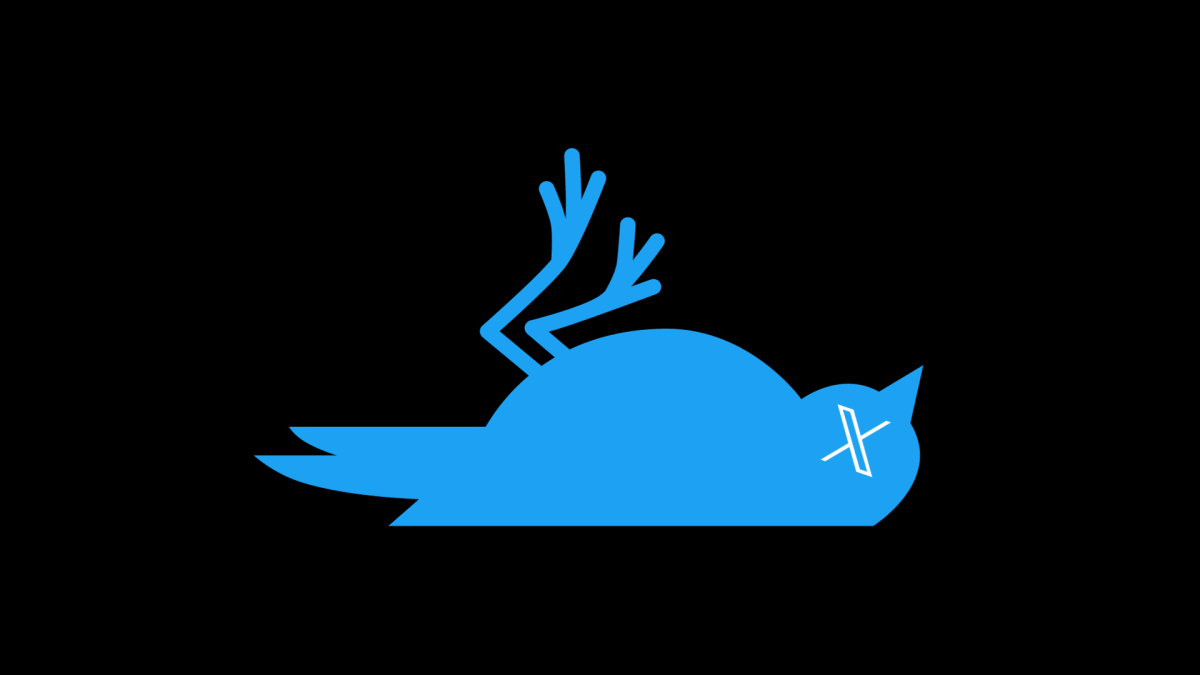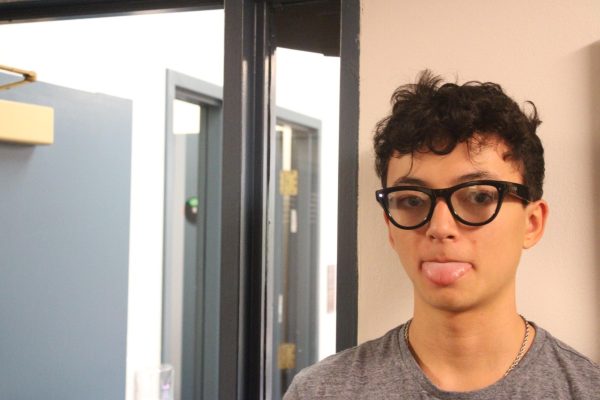X Marks the Spot of the Dead Twitter Bird
Illustration of the Twitter bird, lying with Xs through its eyes, after the company’s world-renowned branding was replaced after 17 years.
Only eight months after purchasing and taking over the social media platform Twitter with $44 billion of personal funds, Elon Musk posted a mysterious picture of an “X” projected onto the company’s headquarters in the middle of the night.
Eliminating the branding that accompanied the platform’s 17 years and helped it become a household name was the last thing many Twitter users expected the picture to signify. Yet in a matter of hours after Musk’s original post, any mention of Twitter had disappeared, with X marking the spot where the iconic Twitter bird had stopped tweeting after nearly two decades.
The change was inevitably turbulent, with the decision announced via a tweet and implemented overnight by a company that had just lost half its workforce. At Twitter’s San Francisco offices, some questioned if Musk renamed the platform to “er” as staff managed to remove only five letters from the “Twitter” sign on the side of the building before the city asked to see a permit, which they did not have. This incident followed a lawsuit brought against Twitter and Musk by former Twitter employees who alleged that they were ordered to make illegal building changes, including installing a bathroom next to his office without the correct permits.
While the company took time to adjust to its new identity, many people were confused about why the rebrand happened in the first place. “I was confused on why, but I didn’t really care much,” Latin senior Dillon Romano said. “The content I’ve seen is the same.”
Likewise, sophomore Kai Blacknard said, “X does not make any sense. What happened? Who’s going to like a brand name called X?”
However, X marks an important step toward Musk’s vision for the future of the platform: It aligns with the ambition that both Musk and Linda Yaccarino, CEO of X Corp, the parent company of X, share to create a super app. Musk, responding to widespread uncertainty surrounding the rebrand, explained, “Twitter was acquired by X Corp both to ensure freedom of speech and as an accelerant for X, the everything app. This is not simply a company renaming itself.”
Super apps (or “everything apps”) are the Swiss army knife of mobile apps, combining as many features as possible into one app that users never have to leave. There are already thriving super apps across the globe, such as in China, where one billion monthly active users turn to WeChat for what people might otherwise have to rely on dozens of different platforms for.
Upper School Computer Science Department Chair Ash Hansberry said, “Most people, how they use their phones is that they have multiple social media apps. You might have Instagram, Snapchat, and Twitter or X. And then you have multiple apps for entertainment. You might have YouTube and Netflix and apps for games. And then you have apps for banking, and one for your bank account, and one for tracking your spending. That’s certainly how my phone is. I have multiple apps for all of these different things, and the idea of a super app is to combine multiple—or all, potentially—of those features together into one app.”
Musk has publicly echoed these ideas on X’s future. “In the months to come, we will add comprehensive communications and the ability to conduct your entire financial world,” he said.
Mx. Hansberry, while recognizing the convenience factor of a super app, noted that it comes at a cost for data privacy: “It’s an advertiser’s dream scenario to have that much information about people—to know not only what kinds of things they like for entertainment, but how much money they have to spend and what they’ve spent it on in the past.”
In “The Social Dilemma,” a documentary about the dangers of social media companies, Netscape co-founder Marc Andreessen said, “If you’re not paying for the product, you are the product.” Right now, consumers can avoid platforms with business models that revolve around data exploitation. But when refusing to give a social media company your data means missing out on online banking or communication technologies as fundamental as texting, all control over one’s privacy is lost.
Upper School history and economics teacher Grzegorz Gaczol sees both the advantages and disadvantages of a super app: “Putting everything under one roof theoretically sounds fantastic for the consumer. And theoretically, for the provider of those services, it’s great because you get an easy opportunity to bring everybody and have everything in one warehouse.”
At the same time, he acknowledges that from an economics perspective, “Competition in the marketplace, whether that’s department stores or online platforms or specific social media sites, is good [because it] forces the provider to act in the best interest of consumers.” A super app can decrease competition and potentially be harmful to the consumer. “Putting everything under one roof like Elon Musk wants to do puts that in danger.”
Beyond Musk’s desire to grow Twitter into more than just a social media platform also lies the desire to redefine the company’s values with its fresh branding. Musk says he heavily prioritizes transparency and freedom of speech while at the helm of the company, especially with the exposé of internal documents he released, albeit to a select group of journalists, that shined a light on the past role of Twitter’s moderation teams in censoring misinformation and disinformation.
“Given that Twitter serves as the de facto public town square, failing to adhere to free speech principles fundamentally undermines democracy,” Musk said before purchasing the platform. Still, many critics question if his efforts are authentic, especially with the company now threatening to sue the Anti-Defamation League for defamation.
Demonstrating these values, Musk has continued to praise Community Notes as the future of Twitter’s moderation. The feature allows for a more democratic fight against misinformation by letting readers add context to tweets that the majority find—and prove—misleading.
When asked about this approach, Upper School history teacher Matt June said, “My personal view is that the best way to deal with bad ideas is to shine light on them and to expose them.” Dr. June does recognize that “social media in particular is a unique world in how it can spread not just potentially misinformation, but dangerous information rapidly and in some unchecked ways.”
Continuing to expand their contributions to democracy, Musk has also continued to emphasize the international work the company does with governments to fight censorship of their platform and the greater internet. According to the official X account of X’s Global Government Affairs team, the team operates under the principle that “access to the free and #OpenInternet is an essential human right in modern society.”
It’s unclear whether X will succeed in becoming the “everything app” that Elon Musk imagined when purchasing the platform. However, the social media portion of the platform continues to build as new aspects and updates are added. Most recently, the X team has added a myriad of new ways for people to create content and earn profit on Twitter, including long-form video, ad revenue sharing, and paid subscriptions to creators.
These improvements are just a few of the changes that X has gone through since its rename and acquisition, all with varying public reception. In the end, Mr. Gaczol, comes back to the idea that “it’s your decision” whether to use the app. “If the market disapproves, then they should stop using the service or buying the product,” he said.

Teddy Lampert (’26) is excited to be serving as the Digital Editor-in-Chief for his fourth year on the Forum staff. He hopes to continue his work from...





















































Mr. Joyce • Oct 16, 2023 at 3:04 pm
Teddy, nice work roping in all of these voices (what’s up Kai?!). And thank you for teaching me about “super apps.”